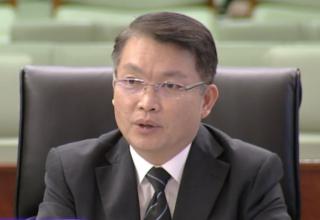Circa 5pct Macau punters create 40pct of losses: survey
Jan 11, 2017 Newsdesk Latest News, Macau, Top of the deck

A proprietary survey of 1,900 mainland China residents indicated 5 percent of those who admitted gambling on trips to Macau had the potential to generate approximately 40 percent of the aggregate gambling losses borne by the sample on a per-visit basis.
In the Las Vegas, Nevada, gambling market, the truism quoted by marketing professionals is that 20 percent of casino customers generate 80 percent of casino revenue.
The poll of mainland Chinese consumer behaviour in relation to Macau, by brokerage Sanford C. Bernstein Ltd, with commentary by analysts Vitaly Umansky, Zhen Gong and Yang Xie, attempted to focus on mass-market players and featured respondents with an annual household income of more than RMB120,000 (US$17,328). The average annual household income in the survey was RMB420,000.
Nearly two-thirds of survey respondents said they had been to Macau over the past two years, with 49 percent having visited in the previous 12 months.
Among those that had been to Macau over the past 12 months, 43 percent said they had visited the city more than once, with 17 percent of trippers having visited on three or more occasions.
The survey suggested that many casino customers – particularly at the premium end – rely on cash withdrawals from bank accounts held in Macau or Hong Kong; and transactions via China UnionPay Co Ltd, to fund their gambling.
The mainland and Macau authorities have recently respectively announced measures to step up scrutiny and control in particular of UnionPay transactions in Macau.
The Sanford Bernstein poll further indicated casino loyalty programmes were gaining popularity in Macau, with 49 percent of those respondents that have visited the city joining at least one scheme.
It additionally found that nearly half of all respondents have seen some form of online marketing of Macau or casinos. A number of investment analysts have separately attributed high recognition rates among Chinese consumers regarding Sands China Ltd’s Cotai resort the Parisian Macao – which opened on September 13 – to extensive online and offline marketing.
Sanford Bernstein’s survey suggested the majority of self-confirmed Macau visitors prefer to stay overnight, with length of stay increasing and Macau often being part of a larger trip that commonly includes Hong Kong.
Gaming budgets
A total of 5 percent of respondents that admitted gambling in Macau reported gaming losses of more than RMB30,000 per visit – the average loss in that cohort being RMB62,500. Sanford Bernstein said those 5 percent accounted for 41 percent of the aggregate gambling losses the self-identified players reported being willing to bear per visit.
Sanford Bernstein said there was a “reasonable indication” the 5 percent were what the industry terms ‘premium mass’ players.
A further 7 percent of gambling respondents had per-trip gaming losses of RMB10,000 to RMB30,000, which the brokerage referred to as “higher-end base mass players”.
A total of 88 percent of gambling respondents were classified as “mid- to low-end” base mass or “grind” players with losses under RMB10,000 per visit. These players on average had losses of RMB5,500 per visit.
Funding methods
When gambling respondents were asked about their preparations regarding cash to spend at casinos, bringing in cash and using UnionPay automated teller machines were the most frequently used methods, with, respectively, 49 percent and 46 percent of self-identified gambling trippers to Macau mentioning these methods. More than 20 percent of such trippers claimed to have access to either Hong Kong or Macau bank accounts, while pawnshops were utilised by nearly 20 percent of such respondents.
Sanford Bernstein noted: “Interestingly, slightly over 10 percent of [gambler] respondents [said they] used ‘junkets’ for funding: we question the validity of this answer by our survey sample as it does not correspond to the level of play identified.”
Loyalty programmes and online marketing
The survey indicated 49 percent of those respondents that have been to Macau are members of casino loyalty programmes there, with higher penetration of such schemes among those at higher income levels.
“Sands Rewards is the most popular programme, with over 50 percent participation from those who have joined loyalty programmes,” said the brokerage.
A total of 47 percent of all respondents had seen some form of advertising for Macau; over one-third had not, and the rest were “not sure”.
Sanford Bernstein said: “Respondents claimed online (excluding social media) marketing as the most common channel, with 57 percent of respondents having seen advertising online (including travel agencies)… 36 percent of respondents saw ads through official social media and a similar percentage saw postings on friends’/family’s social media.”
Length of stay
On aggregate 80 percent of respondents that had been to Macau claimed they had visited Macau on overnight trips. The average length of stay was 1.5 nights for respondents from Guangdong (versus 2.2 nights for non-Guangdong people). Of the Guangdong-based people, 22 percent were same-day visitors to Macau; 33 percent stayed for one night; 26 percent for two nights; and 18 percent for three-plus nights. Among tripper respondents from outside Guangdong, only 6 percent were same-day visitors: 20 percent stayed for one night; 37 percent for two nights, and 47 percent for three-plus nights.
“It’s unsurprising to see the results because visitors from non-Guangdong provinces usually stay longer per visit as they spend longer time on the road to Macau,” noted Sanford Bernstein.
“With mass gaming and increasing overnight visitation being a key driver, consumer preferences and behaviours are becoming more important in evaluating the future of the Macau gaming market,” noted the brokerage.
Related articles
-
 Grand Lisboa to tap ex-junket space as...
Grand Lisboa to tap ex-junket space as...Nov 13, 2024
-
 Galaxy Ent can opt new finance model...
Galaxy Ent can opt new finance model...Nov 12, 2024
More news
-
 GKL provides its new table game...
GKL provides its new table game...Nov 22, 2024
-
 The Baron Upright, a new cabinet from...
The Baron Upright, a new cabinet from...Nov 22, 2024
Latest News
Nov 22, 2024
Casino operator Grand Korea Leisure Co Ltd (GKL) says it has achieved its first commercialisation of a new-to-market table game, developed via an in-house competition dating to 2021. Grand Korea...Sign up to our FREE Newsletter
 (Click here for more)
(Click here for more)
Pick of the Day
”As we navigate the final steps of the licensing process, we remain confident in our ability to align with Brazil’s regulatory requirements”
Eusebio Tanco
Chairman of DigiPlus Interactive
Most Popular
 Macau to get 36mln visitors in 2025: Secretary Lei November 21, 2024
Macau to get 36mln visitors in 2025: Secretary Lei November 21, 2024  Gaming technology firm IGT reports hacking incident November 21, 2024
Gaming technology firm IGT reports hacking incident November 21, 2024  US$30bln 2025 GGR target achievable for Macau: CE November 19, 2024
US$30bln 2025 GGR target achievable for Macau: CE November 19, 2024  Marina Bay Sands projects 40pct EBITDA leap post extension November 20, 2024
Marina Bay Sands projects 40pct EBITDA leap post extension November 20, 2024  Macau big-event outdoor venue gets trial run Dec 28: CE November 20, 2024
Macau big-event outdoor venue gets trial run Dec 28: CE November 20, 2024









